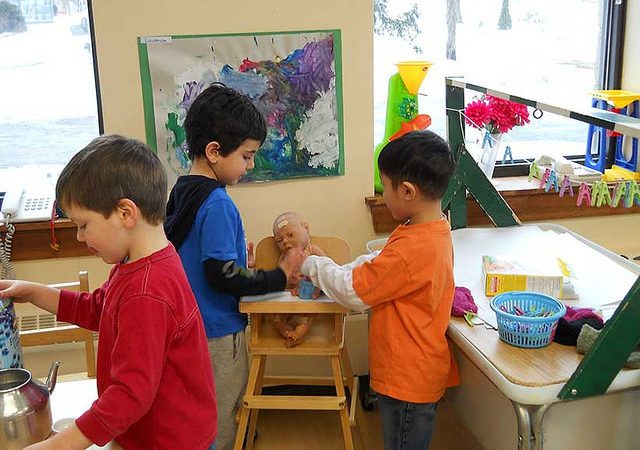
Research at the NCT
This week’s Q&A was with Sarah McMullen, Head of Knowledge at the NCT (National Childbirth Trust), supported by Rachel Plachcinski, the NCT’s Research Engagement Officer.
Sarah says:
The Knowledge team support NCT to be evidence-based in all we do. This means working across a huge range of topics and scientific disciplines – so we’re lucky to be always learning! We are involved in developing and evaluating NCT’s support services for expectant and new parents, gathering over 20,000 pieces of feedback every year. We work with research teams across the UK on issues that matter to parents. We also manage NCT’s web content for parents, making sure we share engaging and trustworthy information to help parents make informed decisions.
I am also mum to 7 year old twin girls. You can read a bit more about me and how I came to be working at NCT here.
PSG: We know that the NCT is very involved in influencing what research takes place.
What do you see as the most pressing topic that we need more research into at the minute?
Sarah: Oh my goodness what a question! We cover such a wide range of areas, that there are quite a few. Within maternity services, I would say models of care – how do our maternity services need to be set up to give women and babies the best possible outcomes and experience?
PSG: Could you give us some examples of models of care? I’m not really sure what that means!
Sarah: It’s about how different health professionals work with women and with each other. So community midwifery services, midwifery led units, home birth services, hospital settings, and obstetric care all fall into this -it can be a real mix of different people depending on a woman’s circumstances.
Some models of care which we know have benefits are not typically experiences, for example, we know that women value being able to see the same midwife throughout their pregnancy, but typically, few have ever met the midwife before who supports them during labour.
We have NICE guidelines now which set out the ideals for different birth settings, and continuity of care. But we know it just isn’t what most women get. How do we implement what we know from research actually works? BIG question.
Rachel: Yes, the clash between what research says and what midwives and obstetricians feel comfortable delivering can lead to some very interesting discussions.
PSG: I sort of assumed that research would suggest good practice …
and that would make sense to health professionals, and even if there were logistical problems in delivering the research recommendations, that they would be comfortable with trying to do so. What sort of things have you come across that there have been “interesting” discussions about?
Rachel: I run NCT antenatal courses, and something which clients often struggled to take on board was that one midwife could disagree with another on the same unit, and the same with doctors. That doesn’t go away when you get into the higher echelons of research.
A big issue right now is electronic fetal monitoring using CTG (the belt monitor). The research show very little improvement in outcomes, even for women and babies with a higher chance of complications, but it’s still widely used.
PSG: What do you think is the biggest unknown in breastfeeding?
Sarah: We could probably do a whole chat on this couldn’t we? We know a lot about what women find difficult and why women stop. We know a lot about what support women value and what can help women to breastfeed for as long they would like to. But we don’t know how to get these services in place across the UK, and make them really accessible to all. Part of that is demonstrating they actually work – we have limited high quality evidence. But there’s lots of work going on in this area. There’s quite a bit funded by NIHR (National Institute for Health Research), that we’re involved in. And we provide support all of the country and hear how much women value it.
PSG: How do you go about your research? Test groups? Blind studies?
What methods do you think work for gathering information on such a wide subject area?
Sarah: Most of the research we’re involved in is with universities. This includes lots of different types – from really big randomised controlled trials to smaller observational studies. We also do lots of qualitative research – listening to what women and families say, and understanding their experiences and preferences.
We have a research team within NCT too, and we do our own research. Mostly focused on evaluating and informing the design of our own services and support for parents.
We’ve recently done research on women’s experiences of breastfeeding and breastfeeding support. And we did the ‘First 1000 Days Study’ which followed parents through pregnancy, birth and beyond to get a good feel for what it’s like to be a parent at the moment and the key challenges along the way!
What’s important to us, is what is important to women and families – so listening to all the parents we come into contact with is really important. Our antenatal teachers are a great source of input – as they hear from parents every day about what matters to them!
PSG: And what are the key challenges?
Sarah: Key challenges…. the clash between expectations and reality, and coping with those early days and weeks with a new baby! Emotional wellbeing and mental health. Difficulties with breastfeeding and getting support. Coping with conflicting information and advice. And then returning to work and money issues. Lots of themes came out of the study!
The clash between expectations and reality is a big one, and people often say that they felt unprepared. But they also often say that they don’t feel anything could have prepared them. That’s a really tricky balance. We try to help as best we can through our information for parents and antenatal courses.
PSG: Do you think there’s something in the idea of the “lost village”?
Did people in the past simply have more experience of babies becoming parents (bigger families, less moving away from home)? Could online communities be bridging that gap?
Sarah: The ‘lost village’ is a really good point. Becoming a parent can be a really isolating and lonely time, and women often struggle on with little support. Volunteering and community support is a great way to recreate that village. And we’re developing volunteer peer support models to help women who are facing isolation to get support and help connect them into a community.
Rachel: Online communities have definite potential, and I’ve come across a couple of researchers who were looking into whether online groups were good for parents who struggled with social interaction, such as those with Asperger’s syndrome.
PSG: Can you tell us more about the expectations vs reality situation?
I think most of us would agree that in the first year, the sleep issue is common to many people, but what are the other major themes where parents are simply astonished at the unexpected situation they find themselves in?
Rachel: Crying is a big thing, as in what’s the difference between normal and excessive. We’ve been collaborating on Surviving Crying, a brilliant study run by De Montfort University in Leicester, with a report due in the autumn.
Sarah: On expectations versus reality, you’re right – sleep is a really big theme. The sheer relentlessness of sleep deprivation and exhaustion makes it more difficult to cope with everything else too. Many women find breastfeeding really challenging, and perhaps didn’t feel prepared for this. This can make it a bit harder to know what’s going on or how to find support when you’re in the midst of it all.
Again on expectations versus reality, the impact on relationships can be really hard.
Rachel: I really like this paper – Petch and Halford: Psycho-education to enhance couples’ transition to parenthood. Clinical Psychology Review 28 (2008) 1125–1137. Gives a really interesting summary. (http://www.sciencedirect.com/science/article/pii/S0272735808000706)
PSG: At Parenting Science Gang we’re really interested in finding the gaps in research.
Are there any gaps in research or persistent parenting myths that frustrate you and you wish you had data for? Or to put it another way, if you could wave a magic wand and get any kind of research / evidence, what would it be?
Rachel: There’s very little out there on parenting in same sex relationships – some anecdotal stuff but little actual research. We need more on supporting relationships generally, but especially in those families
PSG: One of the big challenges you must face is the diversity of your audience – everyone was a child once!
Are there any groups that you feel you have a particular responsibility towards? And are there any groups that you feel you could do more for?
Sarah: Great question. We do support a really diverse audience, and have just put in place a new strategy to support more and more parents in the future. There are some issues which seem common to a very wide range of people, whereas other issues will be a bit more specific to some groups.
Our ambition is that no parent should be isolated, and all parents should feel supported and confident. We take a fairly universal approach – what are the really key and common issues that affect broad groups of parents? But we also support specific groups of parents in different ways, e.g. there is some great local work to support refugee and asylum seekers. And we have a focus on mental health at the moment, specifically supporting women experiencing mild to moderate mental health issues.
PSG: I understand that everything on the NCT website is based on research, but you rarely mention specific studies or link to them. Why is that?
Sarah: We’ve just started a big project to review and overhaul all of our web content. The intention is always that this content should be evidence-based and up to date, and that it should offer a balanced overview to support parents to make their own decisions. We’re reviewing it all at the moment, and our brilliant content manager will be writing and editing it all to make it nice and engaging. At the moment, we don’t link to the actual research, but we hope to be able to list key references in the longer term. Is this something that the Parent Science Gang would like to see?
PSG: I think most of us would!
I’m afraid that so many people have heard things that they know are not true from trusted people (eg health professionals), that we can be a bit skeptical about any information given to us – we like to know where it’s come from!
Sarah: Yes, we hear from so many women (and partners) that they get so much conflicting information and advice. What we don’t want to do is add another layer to that. Instead, we need to help parents navigate through that.
PSG: One problem that we’ve come up against is that in some cases it seems as if you can find research to back up any parenting technique you chose!
If you look hard enough you can find evidence to support you doing two entirely opposite things. How does the NCT cope with that?
Sarah: You’re right – you can always find a piece of evidence to support something if you look hard enough! What we have to do is take a really unbiased and thorough approach when we review evidence on a particular topic. So what is the balanced message, based on ALL of the research – rather than a biased selection. Often, clever people have done the work for us – publishing systematic reviews or meta-analyses – articles which bring all of the evidence together on a topic. But even these can go out of date quickly!
Rachel: I think the NCT webpage on parenting styles is a really good summary of our approach – encouraging parents to think through the key issues for them, in their own personal context.
PSG: I don’t really know anything about qualitative research
– if we ask people about their experience of something, how can we have any confidence in the accuracy of what they are telling us?! Do you have any advice based on the NCT’s research projects?
Sarah: There’s a real science to qualitative research. The themes that you identify will only ever represent the people you’re talking to. So getting a good range of people is important. And then how you analyse what you hear needs to have a similar scientific approach as if it was data. It can be really useful to read the methods sections of published research and see which bits you could try to incorporate into what you do! We could suggest some websites or papers to read to help think about your approach?
PSG: One of the things that PSG is going to have to do is a big literature survey on any subject that we decide to look into.
Does the NCT have a library or list of resources? We don’t really want to find ourselves repeating work that you’ve already done!
Sarah: Ooh that sounds exciting. We do, and the MIDIRS (Midwives Information and Resource Service, https://www.midirs.org) team run a reference database which does literature searches. We might be able to help you out with that one.
PSG: We’re quite a small group with a limited amount of experiences (and children!).
How do you think we should go about increasing our sample size if we decide to look into the effect of attitudes?
Sarah: The internet is a wonderful thing! If you can link into lots of different pregnancy and parenting forums and groups, then you can get really decent sample sizes for survey work. For interviews and focus groups, it’s really intensive community based work. It’s also good to look at demographics to see how representative a sample you’re getting.


